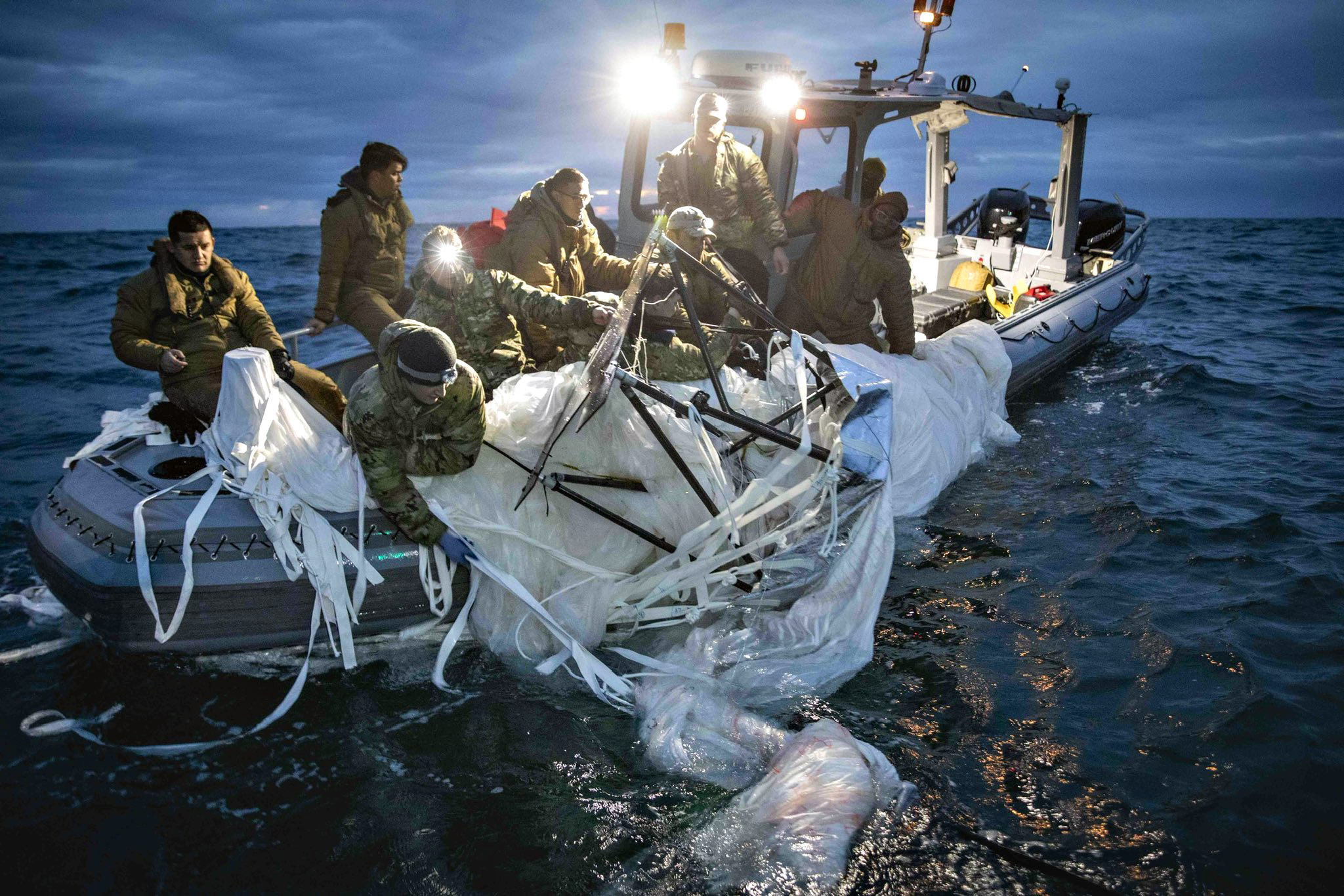Chinese surveillance balloon part of massive program over 5 continents: Blinken
The Pentagon disclosed Chinese missions over four "sensitive sites" in the U.S.
Secretary of State Antony Blinken on Wednesday revealed that the U.S. assesses the alleged Chinese spy balloon shot down over the weekend was part of an expansive surveillance program aimed at gathering intelligence from targets around the globe.
Speaking at a joint press conference with NATO's top official, Blinken said the administration was already sharing what the U.S. intelligence community had uncovered with America's allies and Congress.
"Senior administration officials are on the Hill this week, and we already shared information with dozens of countries around the world, both from Washington and from our embassies," Blinken said. "We're doing this because the United States was not the only target of this broader program, which has violated the sovereignty of countries across five continents."

Meanwhile, at a Pentagon news briefing, Brig. Gen. Pat Ryder disclosed that China had conducted four balloon surveillance missions over "sensitive sites" within U.S. territory during recent years, but did not disclose exactly where or when the incidents took place.
"They were over sites that would be of interest to the Chinese, but I'm not going to go into the specifics," Ryder said.
However, a senior U.S. official told ABC Chief Global Affairs Correspondent Martha Raddatz that previous incursions into American airspace took place over Hawaii and off the coast of the continental U.S. -- specifically near Coronado, California, and Norfolk, Virginia -- where two of the nation's largest naval bases are located.

That official also advised that the U.S. had briefed India, Japan, Vietnam, and Taiwan -- all of which appear to have been surveilled by Chinese balloons.
The same official also advised that Chinese balloons are believed to have transited through more than 40 countries and that the U.S. had recently briefed India, Japan, Vietnam, and Taiwan -- all of which appear to have been surveilled by the aircraft.
While it's not yet clear how much information the administration shared with allies prior to this, a State Department source said that information gathered from tracking the flight of the balloon last week gave agencies a more complete understanding of China's surveillance operation and more confidence in their assessment.

Blinken stressed that the U.S. was still uncovering more as efforts to recover and analyze wreckage from the balloon play out.
"We are getting more information almost by the hour as we continue to work to salvage the balloon," he said.
NATO Secretary General Jens Stoltenberg said on Wednesday that members of the alliance in Europe had observed "increased intelligence activities" carried out by Beijing on the continent, including the use of balloons.
"We need to be aware of the constant risk of Chinese intelligence," he said.
A senior official told Raddatz that the surveillance balloons are operated by a unit within China's People's Liberation Army called "the Reconnaissance Bureau," which is also involved in the country's extensive satellite network.
Blinken was asked whether he believed China's President Xi Jinping was aware of the balloon's presence in American airspace ahead of what would have been the secretary of state's first official visit to Beijing. The trip was indefinitely postponed in response to the incident.
"It doesn't matter on one level which individuals may or may not have been responsible," Blinken said. "The fact is China engaged in this irresponsible action."
President Joe Biden said Wednesday has not spoken to Chinese President Xi Jinping since the US discovered and shot down the spy balloon – dismissing the notion the situation would make the relationship worse.
Asked in an interview with Judy Woodruff of the "PBS NewsHour" whether U.S.-China relations had "taken a big hit," Biden responded, "no."
"I haven't talked to him during this," he said.
"The idea shooting down a balloon that's gathering information over America, and that breaks -- makes relations worse? Look, I made it real clear to Xi Jinping that we're going to compete fully with China, but we're not - we're not looking for conflict. And that's been the case so far," Biden said.
ABC News' Justin Gomez contributed to this report.









